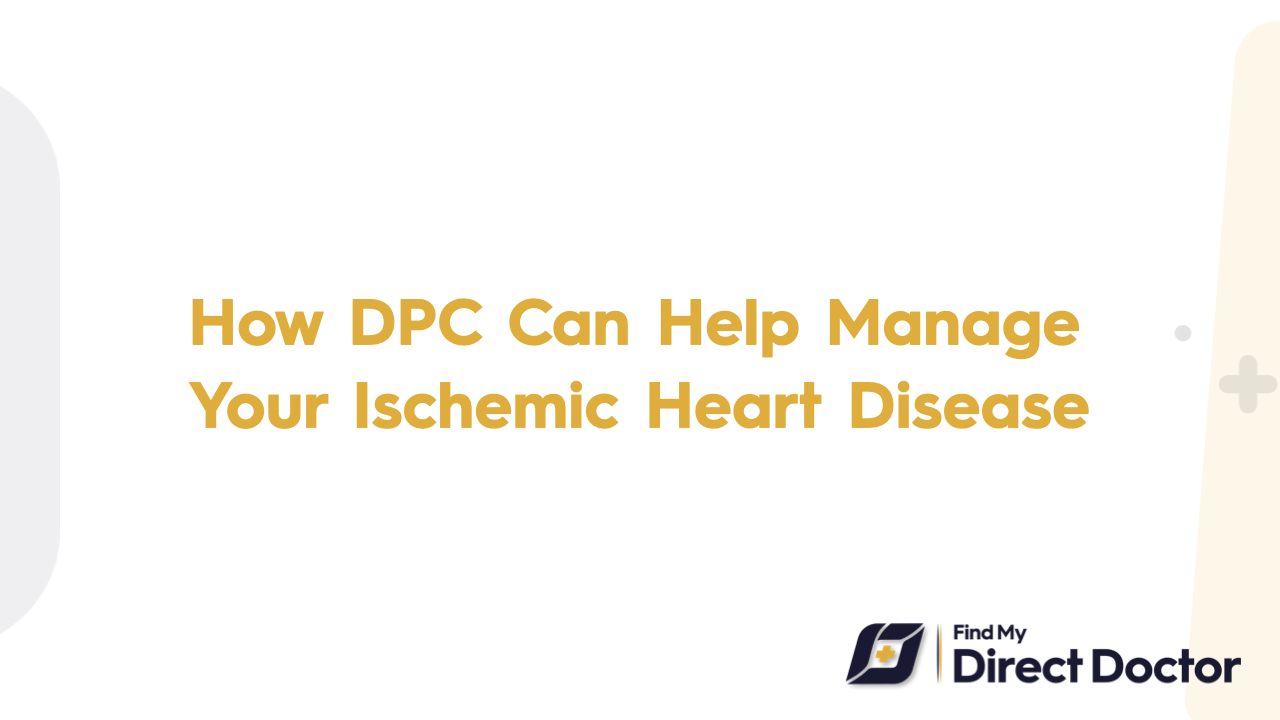



Coronary artery disease (CAD), another name for ischemic heart disease (IHD), is a condition in which the coronary arteries constrict or become blocked, reducing the amount of blood that reaches the heart muscle. The accumulation of plaque (atherosclerosis) in the arteries, which limits the heart's access to oxygen and nutrients, is the main cause of this illness. This deprives the heart muscle of oxygen, which can result in angina (chest pain) or, in more extreme situations, heart attacks.

Depending on the severity of the problem and the amount of the blockage, ischemic heart disease symptoms can change. Shortness of breath, exhaustion, lightheadedness, and chest pain or discomfort are typical symptoms. Some people may feel pain that radiates to their back, jaw, neck, or arms. These symptoms frequently go away with rest after occurring during emotional or physical stress. But when the illness worsens, it might cause more serious symptoms like a heart attack, which needs to be treated right once.
For the treatment of ischemic heart disease, Direct Primary Care (DPC) offers a more proactive and individualized approach. A deeper patient-provider interaction is made possible by DPC, which is crucial for people with long-term illnesses like IHD. Doctors have more time in a DPC setting to evaluate a patient's general health, keep an eye on risk factors, and modify treatment programs as necessary. For those with ischemic heart disease, routine examinations and blood tests are essential for tracking blood pressure, cholesterol, and other factors that may affect heart health.
DPC makes improved continuity of treatment possible. You can talk about lifestyle changes that can lower the risk of heart disease progression, such as diet, exercise, and stress management, with your healthcare provider if you see them more frequently and have easy access to them. It is simpler to address possible symptoms or consequences before they worsen since DPC's direct connection guarantees that patients can voice any concerns. Additionally, DPC doctors can help patients manage drugs like statins or blood thinners, tailoring treatment regimens to each patient's requirements and tolerance.
The opportunity to obtain more tailored care is one of the biggest advantages of DPC for people with ischemic heart disease. Patients with long-term illnesses like IHD might feel hurried during appointments in conventional healthcare settings. Longer consultations are provided by DPC, though, which enables medical professionals to fully comprehend the patient's risk factors, medical background, and lifestyle. Because it guarantees that treatment regimens are tailored to each patient, this individualized care is particularly beneficial when managing a complex condition like ischemic heart disease.
Additionally, DPC promotes improved early intervention and disease prevention. You can get timely screenings and preventive treatment, including blood pressure monitoring, cholesterol testing, and lifestyle counseling, if you see your provider on a regular basis. By being proactive, possible issues can be identified early and more major complications, such heart attacks or strokes, can be avoided. Furthermore, the intimate connection between DPC clinicians and their patients facilitates the management of any co-existing illnesses, such as diabetes or hypertension, which, if unchecked, can exacerbate ischemic heart disease.
In DPC, personalized ischemic heart disease treatment entails creating a thorough, customized strategy that considers the patient's unique risk factors, medical background, and preferences. DPC provides the freedom to develop a management plan that takes into account each patient's particular needs, in contrast to the one-size-fits-all strategy sometimes seen in traditional healthcare systems. In order to lower the risk of heart disease progression, this plan may involve dietary changes, medication adjustments, and physical activity suggestions.
Personalized guidance on coping with emotional stress, which can affect heart health, may also be helpful for patients with ischemic heart disease. DPC clinicians can spend time talking about stress-reduction methods that might enhance general wellbeing, like mindfulness or relaxation activities. DPC also makes it easy to modify the plan as necessary by enabling more frequent follow-up sessions to make sure that treatment objectives are being reached. DPC guarantees that patients with ischemic heart disease receive the resources and assistance they require to effectively manage their illness and gradually improve their heart health by providing continuous, individualized treatment.
Previous Post